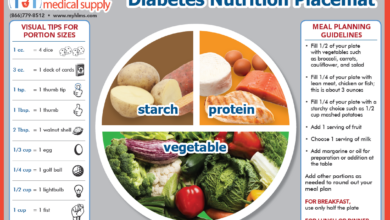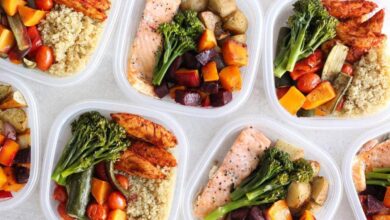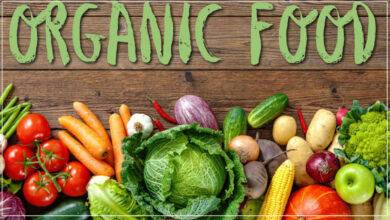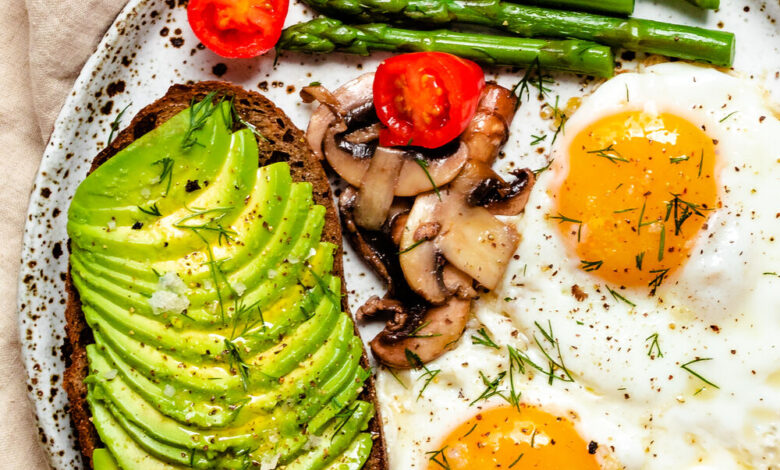
Should Athletes Skip Breakfast?
Should athletes skip breakfast? It’s a question that has sparked debate among athletes, coaches, and nutritionists alike. While some believe that skipping breakfast can boost performance by increasing fat burning, others argue that a nutritious morning meal is essential for providing the energy and nutrients athletes need to fuel their training and competition.
This article will delve into the scientific evidence surrounding the impact of breakfast on athletic performance, exploring the potential benefits and drawbacks of skipping this important meal. We’ll also discuss how individual factors, such as training intensity, dietary preferences, and health conditions, can influence breakfast choices for athletes.
Nutritional Benefits of Breakfast for Athletes
Starting your day with a nutritious breakfast is crucial for athletes, providing essential nutrients to fuel performance, aid recovery, and support overall health. It sets the stage for a successful training session or competition, ensuring your body has the energy and resources it needs to perform at its best.
Carbohydrates for Energy Replenishment
Carbohydrates are the body’s primary source of energy, particularly during intense physical activity. After a night’s sleep, your glycogen stores (stored carbohydrates in muscles and liver) are depleted. Consuming carbohydrates at breakfast helps replenish these stores, providing the fuel needed for training or competition.
For example, a bowl of oatmeal with berries or a whole-wheat toast with peanut butter provides complex carbohydrates that are gradually digested and release energy throughout the morning.
Protein for Muscle Recovery and Growth
Protein is essential for muscle repair and growth, especially after exercise. When you exercise, your muscles experience microscopic tears, and protein helps rebuild and strengthen them. Consuming protein at breakfast kick-starts the recovery process, optimizing muscle growth and reducing soreness.
A good breakfast option could include eggs, Greek yogurt, or a protein smoothie, providing the necessary amino acids for muscle repair.
Healthy Fats for Sustained Energy and Hormone Production
Healthy fats, such as those found in avocados, nuts, and seeds, provide sustained energy and support hormone production. They are essential for regulating energy levels and promoting satiety, keeping you feeling full and energized throughout the morning. Additionally, healthy fats are crucial for the production of hormones, including testosterone, which plays a role in muscle growth and strength.
Key Vitamins and Minerals for Athletic Performance
A balanced breakfast provides essential vitamins and minerals that contribute to optimal athletic performance.
- Iron: Crucial for oxygen transport, supporting endurance and preventing fatigue.
- Calcium: Important for bone health and muscle function.
- Vitamin D: Essential for calcium absorption and muscle strength.
- Potassium: Helps regulate fluid balance and muscle contractions.
- Vitamin B12: Supports energy production and red blood cell formation.
These vitamins and minerals can be found in various breakfast foods like fortified cereals, fruits, dairy products, and leafy green vegetables.
Impact of Skipping Breakfast on Athletic Performance
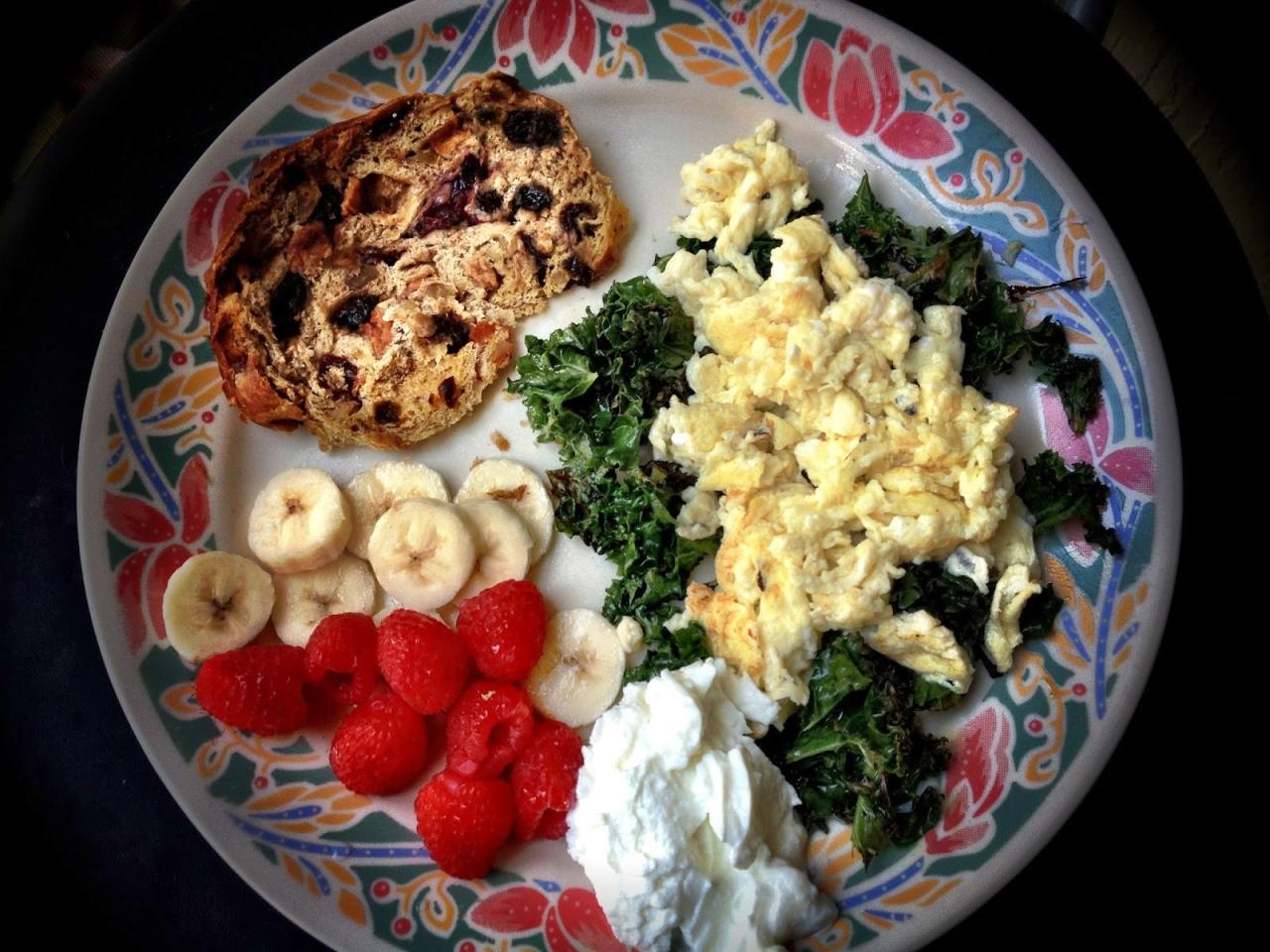
Skipping breakfast, the first meal of the day, can have significant repercussions on an athlete’s performance, especially during training and competition. While some individuals believe that skipping breakfast can aid in weight management or boost energy levels, the scientific evidence suggests otherwise.
The lack of proper nutrition in the morning can lead to a cascade of negative effects that ultimately compromise an athlete’s ability to perform at their peak.
Energy Levels During Training or Competition
Skipping breakfast can significantly impact an athlete’s energy levels during training or competition. The body relies on fuel from food to function, and when this fuel is unavailable, it turns to stored energy reserves, leading to fatigue and decreased performance.
Whether athletes should skip breakfast is a hotly debated topic. While some argue that a pre-workout meal is crucial for energy, others believe it can hinder performance. Regardless of your stance, incorporating more vegetables into your diet is always a good idea.
Check out 5 ways to up your vegetable game for some delicious and nutritious tips. These plant-based powerhouses can provide essential vitamins and minerals that can support both athletic performance and overall health, even if you’re opting for a breakfast-free routine.
The body’s primary energy source is glucose, which is readily available from carbohydrates consumed in breakfast. Without this fuel, the body is forced to tap into its glycogen stores, which are limited and can be depleted quickly. This can lead to a decline in energy levels, reduced power output, and impaired endurance.
The debate about whether athletes should skip breakfast is a complex one, with strong arguments on both sides. Some believe that a pre-workout meal provides essential energy, while others advocate for a fasted state to enhance fat burning. I was reminded of this while reading about how a vacation helped Charlotte lose half her body weight – how a vacation helped charlotte lose half her body weight – and it made me wonder if a change in routine, rather than specific food choices, might be the key to unlocking optimal athletic performance.
- Reduced Power Output:A study published in the Journal of Strength and Conditioning Research found that athletes who skipped breakfast had significantly lower power output during a cycling test compared to those who ate breakfast.
- Impaired Endurance:Another study in the International Journal of Sport Nutrition and Exercise Metabolism showed that athletes who skipped breakfast had shorter running times and experienced increased fatigue during a 10 km run.
Impact on Muscle Recovery and Repair
Muscle recovery and repair are crucial for athletic performance, and skipping breakfast can hinder these processes. After intense training, muscles need adequate protein and carbohydrates to rebuild and repair themselves. Skipping breakfast deprives the body of these essential nutrients, slowing down muscle recovery and increasing the risk of injury.
- Slower Muscle Protein Synthesis:Research suggests that skipping breakfast can negatively impact muscle protein synthesis, the process by which muscles repair and grow. This can lead to delayed muscle recovery and a decrease in muscle strength and size.
- Increased Risk of Injury:Inadequate muscle recovery can make athletes more susceptible to injuries. When muscles are not properly repaired, they become weaker and more prone to tears and strains.
Performance of Athletes Who Eat Breakfast Regularly vs. Those Who Skip It
Numerous studies have compared the performance of athletes who eat breakfast regularly with those who skip it. The results consistently show that athletes who consume a balanced breakfast perform better in various athletic disciplines.
- Improved Cognitive Function:Studies have shown that breakfast consumption is linked to improved cognitive function, including attention, memory, and reaction time. These cognitive benefits can translate into better performance on the field or court.
- Enhanced Physical Performance:Research has demonstrated that athletes who eat breakfast regularly exhibit enhanced physical performance, including increased strength, power, and endurance. This is likely due to the provision of essential nutrients and the regulation of blood sugar levels.
Cognitive and Mental Effects of Skipping Breakfast on Athletic Performance
Skipping breakfast can have negative cognitive and mental effects on athletic performance. The brain relies on glucose for energy, and without sufficient fuel, cognitive function can be impaired, leading to decreased focus, concentration, and decision-making abilities.
- Reduced Concentration:A study published in the journal “Appetite” found that skipping breakfast led to decreased concentration and attention span in young adults.
- Impaired Decision-Making:Research has shown that skipping breakfast can negatively impact decision-making abilities, potentially leading to poor choices during competition.
Individualized Considerations for Athletes: Should Athletes Skip Breakfast
While the general benefits of breakfast for athletes are undeniable, the optimal breakfast for each individual depends on several factors. Recognizing these individual needs is crucial for optimizing athletic performance and overall health.
Whether athletes should skip breakfast is a hot topic, but I’m more focused on filling my Thanksgiving table with vibrant color! I’m aiming for a feast that’s as delicious as it is visually appealing, and I’m drawing inspiration from 5 ways to fill your Thanksgiving table with color to achieve it.
Back to the breakfast debate, I’m convinced that fueling up with a nutritious meal is key for peak performance, even if it’s a pre-workout snack instead of a full breakfast.
Types of Athletes and Their Nutritional Needs
The nutritional needs of athletes vary significantly based on their sport, training intensity, and individual characteristics. The following table illustrates the unique nutritional requirements of different types of athletes:
| Type of Athlete | Specific Nutritional Needs |
|---|---|
| Endurance Athletes (e.g., marathon runners, cyclists) | High carbohydrate intake for sustained energy, adequate protein for muscle repair, and sufficient hydration. |
| Strength Athletes (e.g., weightlifters, powerlifters) | Higher protein intake for muscle growth and repair, adequate carbohydrates for energy, and sufficient calories to support training. |
| Team Sport Athletes (e.g., soccer, basketball) | Balanced diet with adequate carbohydrates, protein, and fats for energy, recovery, and overall health. |
| Young Athletes (e.g., teenagers) | Balanced diet with adequate calories, protein, and essential nutrients to support growth and development. |
Influence of Training Intensity and Duration, Should athletes skip breakfast
The intensity and duration of training significantly influence breakfast requirements. Athletes engaged in high-intensity or long-duration training require a larger and more carbohydrate-rich breakfast to fuel their workouts. For example, a marathon runner training for a race might consume a breakfast rich in complex carbohydrates, such as oatmeal with fruit and nuts, while a weightlifter might prioritize protein intake with eggs and whole-grain toast.
Individual Dietary Preferences and Restrictions
Athletes’ individual dietary preferences and restrictions play a crucial role in breakfast choices. For example, a vegan athlete might opt for a breakfast of tofu scramble with vegetables and whole-grain toast, while an athlete with gluten intolerance might choose gluten-free oatmeal with berries and almond milk.
It’s essential to respect individual preferences and ensure the breakfast provides adequate nutrition without compromising dietary needs.
Potential Health Conditions Influencing Breakfast Choices
Certain health conditions can influence breakfast choices for athletes. For example, athletes with diabetes might need to adjust their carbohydrate intake and timing of meals, while those with gastrointestinal issues might benefit from smaller, more frequent meals. Consulting with a registered dietitian or sports nutritionist is crucial for addressing individual health concerns and tailoring breakfast choices accordingly.
Alternatives to Traditional Breakfast
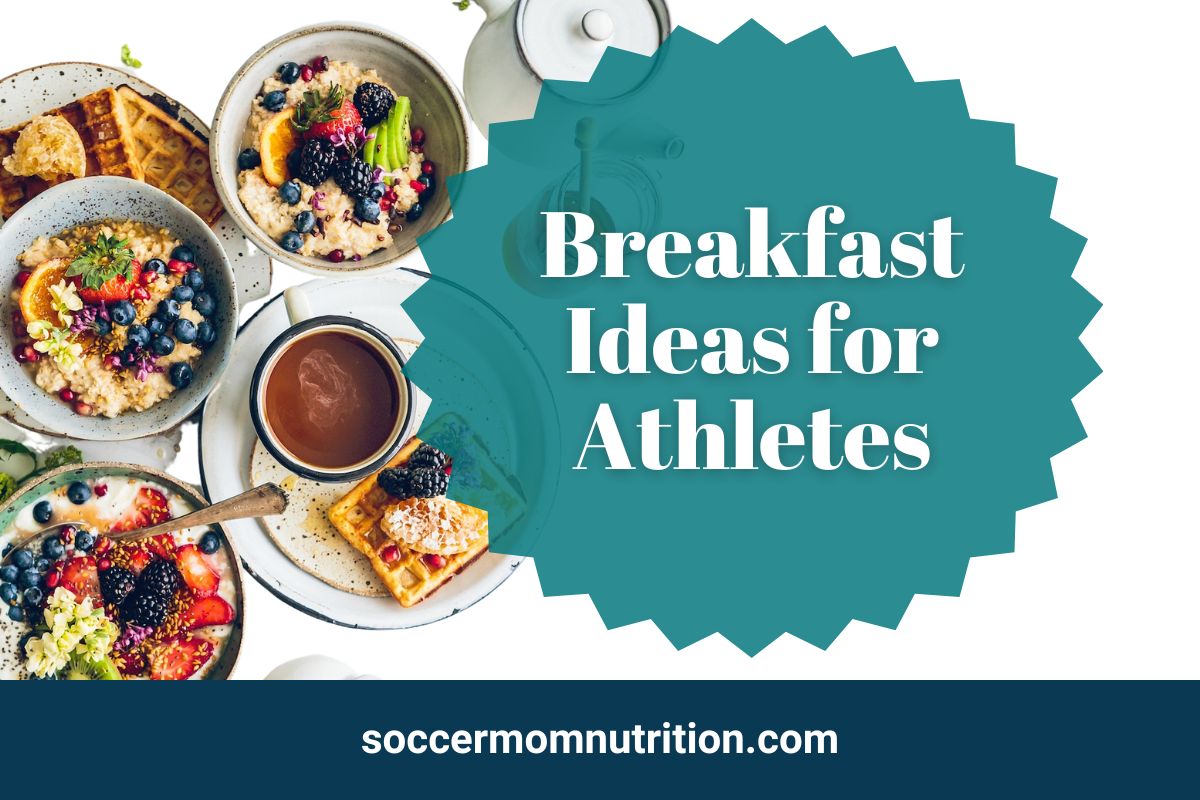
Not everyone enjoys a traditional breakfast of eggs, toast, and fruit, and some athletes may find it difficult to fit into their busy schedules. Fortunately, there are plenty of other nutritious and convenient breakfast options that can fuel your workouts.
Quick and Convenient Breakfast Options for Athletes on the Go
For athletes who are short on time, quick and convenient breakfast options are essential. Here are some ideas:
- Smoothies:Blending fruits, vegetables, yogurt, and protein powder is a quick and easy way to get a nutritious breakfast. For example, a smoothie made with spinach, banana, berries, and protein powder provides a good source of carbohydrates, protein, and antioxidants.
- Overnight Oats:Prepare a batch of overnight oats the night before and grab it on your way out the door. Simply combine rolled oats, milk or yogurt, and your favorite toppings like fruit, nuts, or seeds in a jar or container and refrigerate overnight.
Overnight oats are a great source of fiber, which can help you feel full and satisfied until your next meal.
- Yogurt Parfaits:Layer yogurt, granola, and fruit in a container for a quick and easy breakfast. Greek yogurt is a good source of protein, while granola provides carbohydrates and healthy fats.
- Breakfast Bars:Choose bars that are high in protein and fiber and low in sugar. Look for options that contain whole grains, nuts, and seeds.
- Hard-Boiled Eggs:A simple and portable option, hard-boiled eggs are a good source of protein and can help you feel full for hours. They can be eaten on their own or added to a salad or sandwich.
Nutrient-Dense Snacks Before a Workout
Consuming a nutrient-dense snack before a workout can help improve your performance and recovery. Here are some ideas:
- Fruit:Bananas, apples, and oranges are good sources of carbohydrates and potassium, which is essential for muscle function.
- Trail Mix:A combination of nuts, seeds, and dried fruit provides a mix of carbohydrates, protein, and healthy fats.
- Yogurt:Greek yogurt is a good source of protein and calcium, which is important for bone health.
- Whole-Grain Crackers with Cheese:A good source of carbohydrates, protein, and calcium.
- Energy Bars:Look for bars that are high in protein and carbohydrates and low in sugar. Some energy bars contain caffeine, which can help improve alertness and performance.
Pre-Workout Supplements
Pre-workout supplements are designed to enhance athletic performance. They often contain ingredients such as caffeine, creatine, and beta-alanine, which can help improve energy levels, strength, and endurance. However, it’s important to note that supplements should not replace a healthy diet.
Consult with a healthcare professional or registered dietitian before using any pre-workout supplements, especially if you have any underlying health conditions.
Nutritional Value of Different Breakfast Options
| Breakfast Option | Calories | Protein (g) | Carbohydrates (g) | Fat (g) | Fiber (g) ||—|—|—|—|—|—|| Scrambled Eggs with Toast | 300 | 15 | 30 | 10 | 2 || Oatmeal with Berries and Nuts | 350 | 10 | 60 | 10 | 5 || Yogurt Parfait | 250 | 20 | 30 | 5 | 3 || Smoothie (Banana, Berries, Protein Powder) | 300 | 25 | 40 | 5 | 5 || Overnight Oats | 250 | 10 | 40 | 5 | 5 || Breakfast Bar | 200 | 10 | 30 | 5 | 3 || Hard-Boiled Eggs | 78 | 6 | 0.5 | 5 | 0 |
Closing Summary
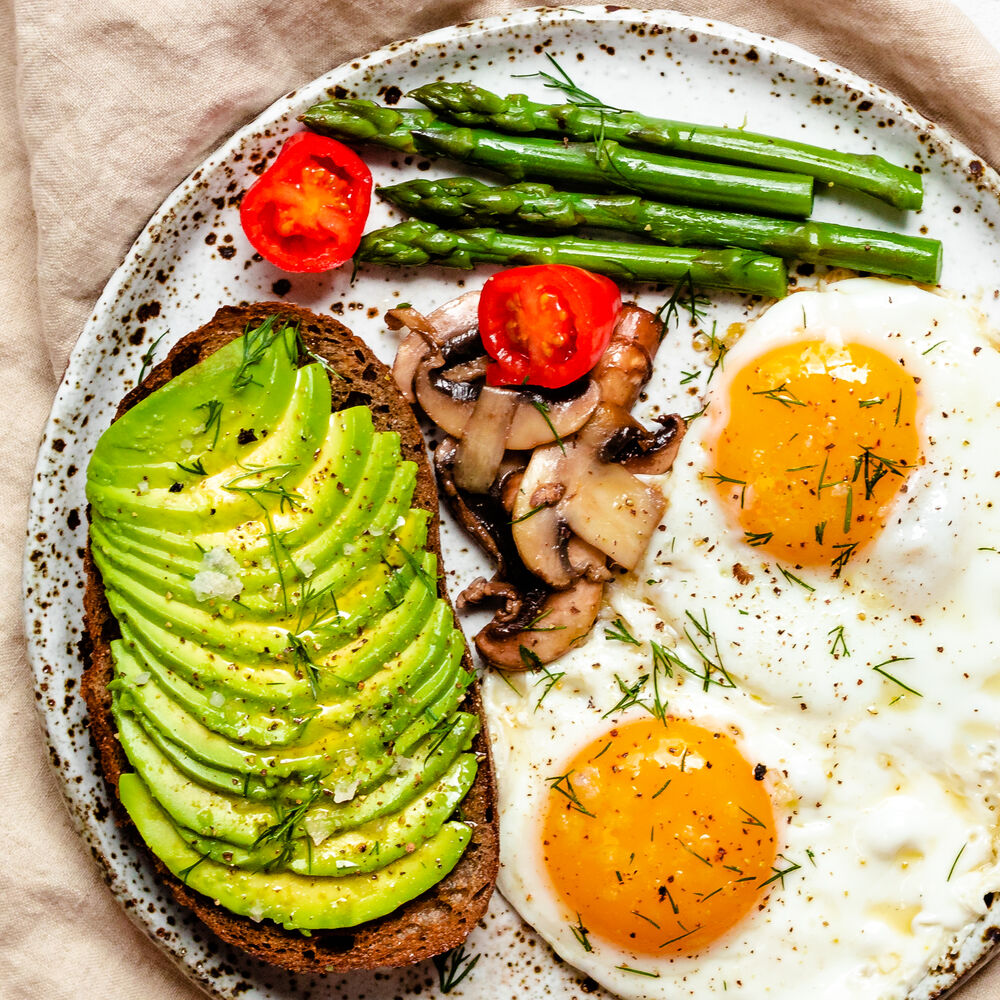
Ultimately, the decision of whether or not to skip breakfast is a personal one that should be based on individual needs and goals. By understanding the science behind breakfast and its potential impact on athletic performance, athletes can make informed choices that support their training and overall health.
Remember, consulting with a registered dietitian or sports nutritionist can provide personalized guidance and help you develop a meal plan that aligns with your unique requirements.


